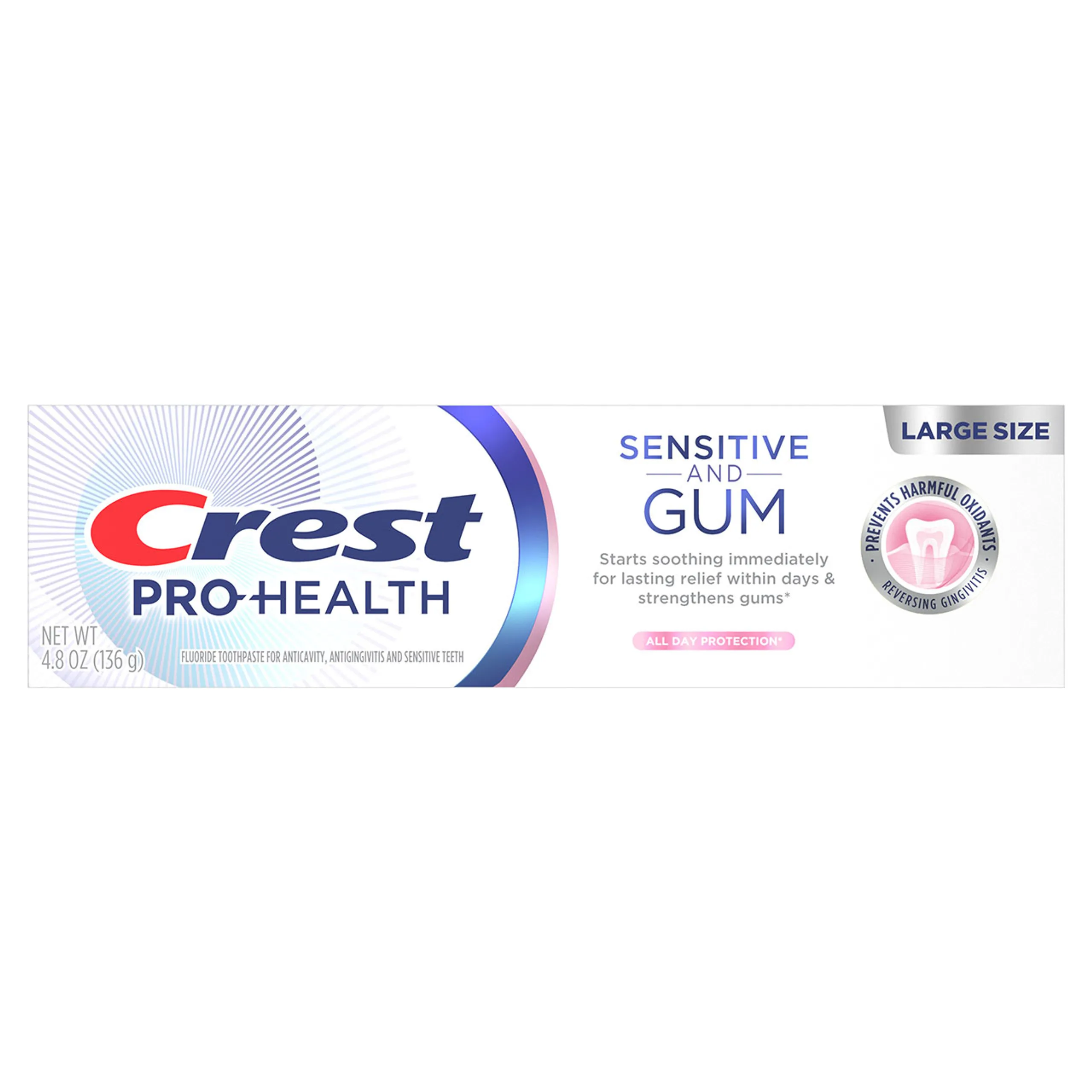What is Crest Whitening for Sensitive Teeth?
Crest has developed specialized whitening toothpaste formulas designed to address the unique needs of individuals with sensitive teeth. These products aim to provide the benefits of teeth whitening while minimizing the discomfort often associated with sensitivity. These toothpastes typically contain ingredients that are gentle on the enamel and gums, reducing the likelihood of irritation. They incorporate ingredients that can help to protect the teeth from sensitivity triggers while still effectively removing surface stains. Understanding the formulation and how it differs from regular whitening toothpaste is the first step. Choosing the right product can lead to a more comfortable and positive experience for those seeking a brighter smile without compromising oral health. It offers a way to achieve a brighter smile without the added sensitivity, offering a balanced approach to oral care.
Understanding Tooth Sensitivity
Tooth sensitivity occurs when the protective enamel on your teeth wears down or the gums recede, exposing the dentin. Dentin contains tiny tubules that lead directly to the nerves of the tooth. When these tubules are exposed, external stimuli such as hot, cold, sweet, or acidic foods and drinks can trigger a sharp, temporary pain. Several factors can contribute to tooth sensitivity. These include aggressive brushing, using a hard-bristled toothbrush, teeth grinding, acid reflux, and the use of whitening products. The experience can range from mild discomfort to significant pain, impacting the enjoyment of everyday activities. Addressing this issue involves identifying the underlying cause and choosing the right products and techniques to alleviate the symptoms. Proper oral hygiene practices and the use of sensitivity-specific toothpaste play a critical role in managing and reducing sensitivity.
Common Causes of Tooth Sensitivity
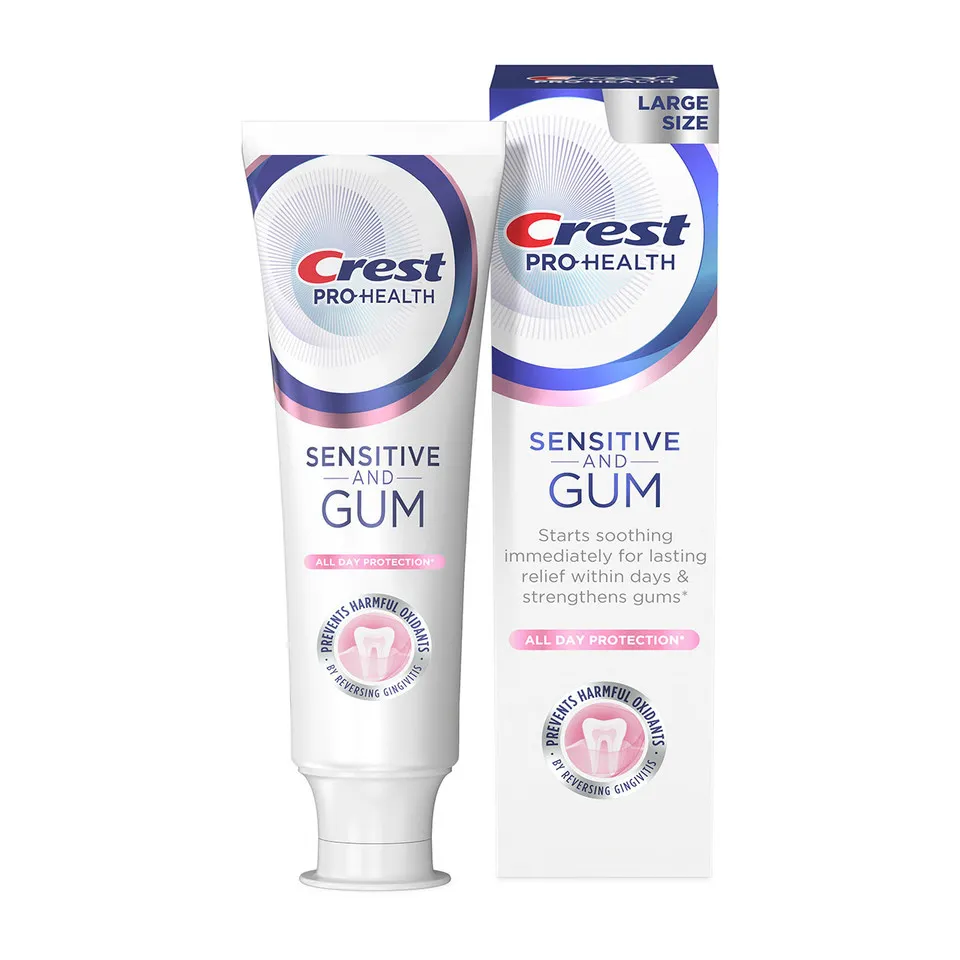
The causes of tooth sensitivity are diverse, ranging from dietary habits to oral hygiene practices. Aggressive brushing, using a hard-bristled toothbrush, can wear down the enamel and irritate the gums, leading to sensitivity. The consumption of acidic foods and drinks, such as citrus fruits, sodas, and vinegar, can erode enamel over time, increasing sensitivity. Gum recession, often caused by periodontal disease or improper brushing, exposes the root surfaces of the teeth, which are more susceptible to sensitivity. Teeth grinding, or bruxism, can wear down the enamel and cause micro-cracks, also increasing sensitivity. Other factors include the use of teeth-whitening products and certain dental procedures. Being aware of these common causes is crucial for adopting preventive measures and choosing appropriate oral care products to manage and reduce sensitivity. Identifying and addressing these causes can help prevent and alleviate the discomfort associated with sensitive teeth, improving overall oral health and comfort.
The Benefits of Crest Whitening Toothpaste for Sensitive Teeth
Crest Whitening Toothpaste for sensitive teeth offers a range of benefits designed to cater to the needs of individuals with sensitive teeth. Unlike traditional whitening toothpastes, these formulations use gentle ingredients to minimize irritation. They aim to provide effective whitening without the common side effect of increased sensitivity. The products often contain ingredients that strengthen enamel, reducing the risk of future sensitivity issues. These toothpastes also help remove surface stains, leading to a brighter smile over time. Many contain fluoride to strengthen enamel and protect against cavities. Choosing the right Crest product tailored for sensitive teeth ensures that you can enjoy the benefits of a whiter smile without compromising your comfort or oral health. Its combined approach to whitening and sensitivity relief makes it a good option for those seeking a balanced oral care routine.
Fact 1 Gentle Whitening Action
The gentle whitening action of Crest toothpaste for sensitive teeth is a key benefit. These toothpastes use milder abrasive agents and lower concentrations of whitening ingredients like hydrogen peroxide. This ensures effective stain removal without causing excessive irritation or sensitivity. The formulations are designed to be less harsh on tooth enamel, preventing further erosion and protecting the underlying dentin. By using gentle ingredients, the risk of experiencing sharp pain or discomfort often associated with whitening products is significantly reduced. This approach allows individuals with sensitive teeth to gradually achieve a brighter smile without compromising their comfort or oral health. The gentle action makes it possible to incorporate teeth whitening into your routine without the usual drawbacks of sensitivity, providing a more positive and comfortable experience.
Fact 2 Sensitivity Protection
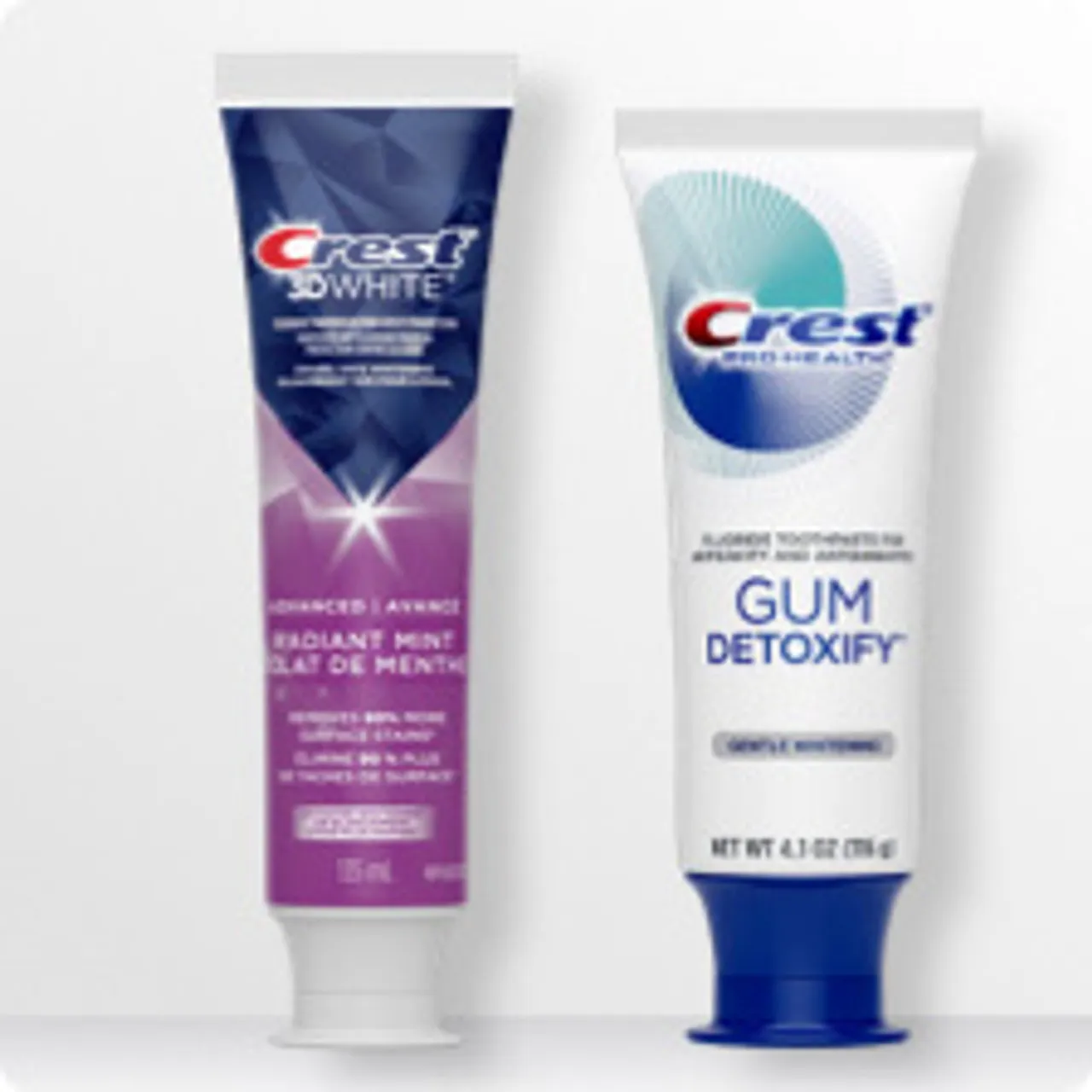
Crest Whitening Toothpaste for sensitive teeth provides an added layer of protection against the triggers that cause sensitivity. Many formulations contain ingredients like potassium nitrate, which works by blocking pain signals from the tooth’s nerves, reducing sensitivity. The toothpaste may also contain fluoride, which strengthens enamel and helps to protect teeth from external stimuli. By creating a barrier against the factors that cause discomfort, such as hot and cold temperatures, the toothpaste provides relief and prevents further sensitivity issues. The protective features help to desensitize the teeth over time, allowing you to enjoy your favorite foods and drinks without discomfort. This approach combines whitening with sensitivity relief, making it a valuable tool for those with sensitive teeth looking to improve their smile while maintaining oral comfort.
Fact 3 Enamel Strengthening
Crest whitening toothpaste for sensitive teeth often incorporates ingredients that fortify and strengthen tooth enamel. A key component in this process is fluoride, which remineralizes the enamel, making it more resistant to acid attacks from food and drinks. Strengthening the enamel helps to reduce the risk of further erosion and sensitivity. By providing these benefits, the toothpaste supports the overall health of the teeth, protecting them from both sensitivity and decay. This dual action of whitening and strengthening makes these toothpastes a good choice for those who are concerned about the long-term health of their teeth. A strong enamel also aids in preventing future sensitivity issues. This proactive approach ensures that the teeth are not only brighter but also better protected against various oral health concerns.
Fact 4 Effective Stain Removal
Despite being gentle on sensitive teeth, Crest whitening toothpaste effectively removes surface stains. The toothpaste contains specific ingredients that break down and lift stains caused by coffee, tea, wine, and other common culprits. These ingredients work without the harsh abrasives found in some other whitening products, minimizing the risk of increased sensitivity. This ensures that your teeth become visibly whiter over time, improving your smile’s overall appearance. Regular use helps to maintain a brighter smile and prevent new stains from setting in. With effective stain removal, this toothpaste can help you achieve a brighter smile without compromising the health and comfort of your teeth. This combination makes it a good choice for those who want to maintain a clean and vibrant smile.
Fact 5 Fresh Breath and Overall Oral Health
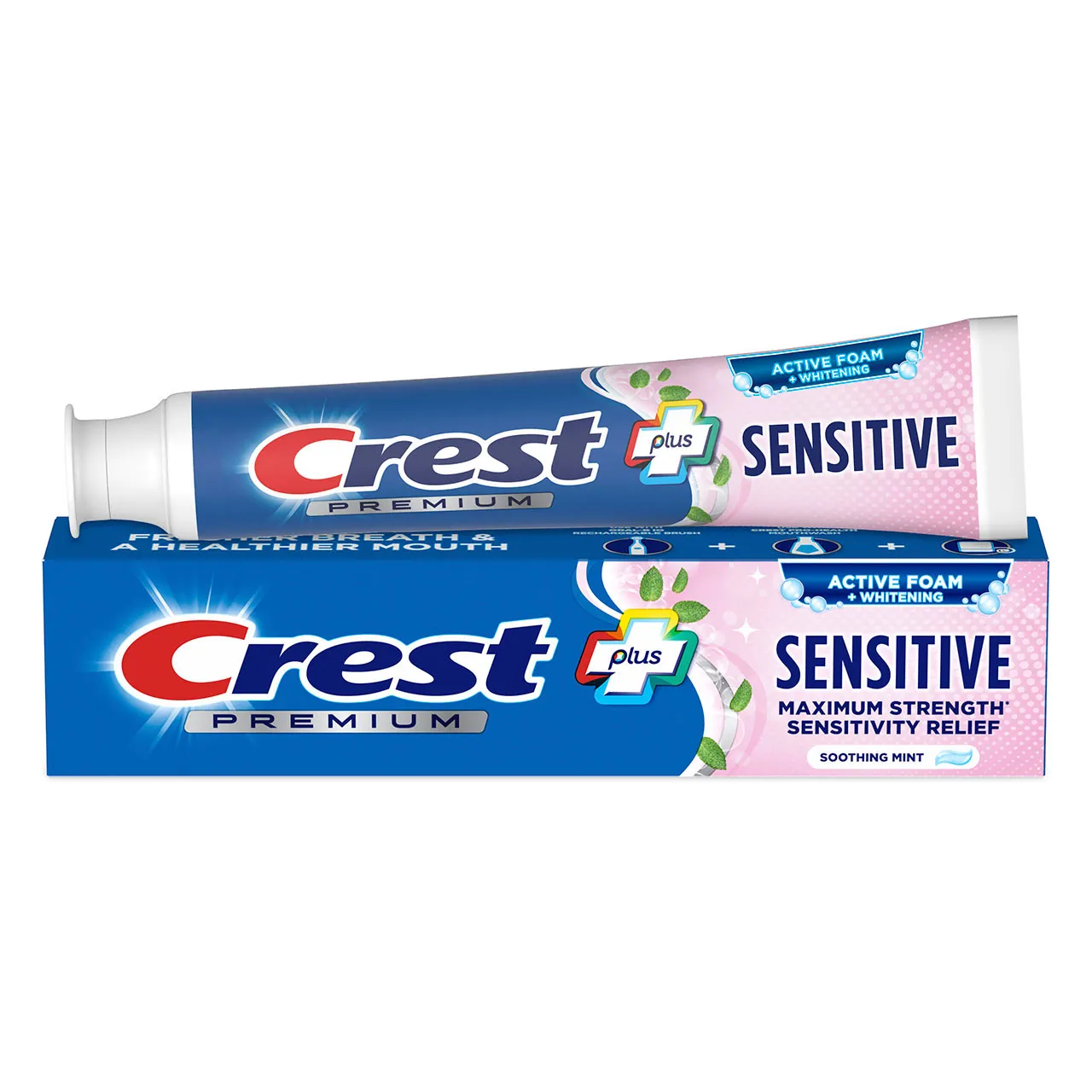
Besides whitening and sensitivity relief, Crest whitening toothpaste for sensitive teeth supports fresh breath and overall oral health. Many formulations contain ingredients that combat bad breath-causing bacteria, leading to a cleaner and fresher mouth feel. The addition of fluoride helps to fight cavities and strengthen enamel, contributing to better dental health overall. By promoting these additional benefits, the toothpaste goes beyond just whitening and provides a complete oral care solution. The regular use of this type of toothpaste promotes good oral hygiene practices, which are essential for maintaining overall health and a bright, confident smile. The focus on complete oral health ensures that you get the best of both worlds, a beautiful smile and a healthy mouth.
How to Use Crest Whitening Toothpaste for Sensitive Teeth
To effectively use Crest whitening toothpaste for sensitive teeth, start by applying a pea-sized amount of toothpaste to a soft-bristled toothbrush. Brush your teeth gently, using small, circular motions, for about two minutes. Ensure you reach all surfaces of your teeth, including the back teeth and the gum line. Rinse your mouth thoroughly with water after brushing. Brush twice daily, morning and evening, for optimal results. Regular use, as directed, helps to maintain a brighter smile and reduce sensitivity. Consistent use is key to experiencing the full benefits, including stain removal, enamel strengthening, and sensitivity protection. Proper brushing technique and duration are essential to ensure that the toothpaste effectively delivers its benefits. Following these simple steps can help you maximize the advantages of this specialized toothpaste.
Choosing the Right Crest Product
Choosing the right Crest product for sensitive teeth involves understanding the different formulations and ingredients. Look for products specifically labeled for sensitive teeth, as these typically contain gentler whitening agents and ingredients like potassium nitrate for sensitivity relief. Check the ingredient list for fluoride, which strengthens enamel. If you have additional oral health concerns, such as gum health or cavity protection, consider products that address these needs. Read product reviews and consult with your dentist to find the best option for your specific situation. Different Crest products offer various benefits, so it’s essential to choose one that aligns with your needs. The right choice can help you achieve a brighter smile while keeping your teeth and gums healthy. Be sure to consider your specific needs and preferences to select the most appropriate toothpaste.
Proper Brushing Techniques
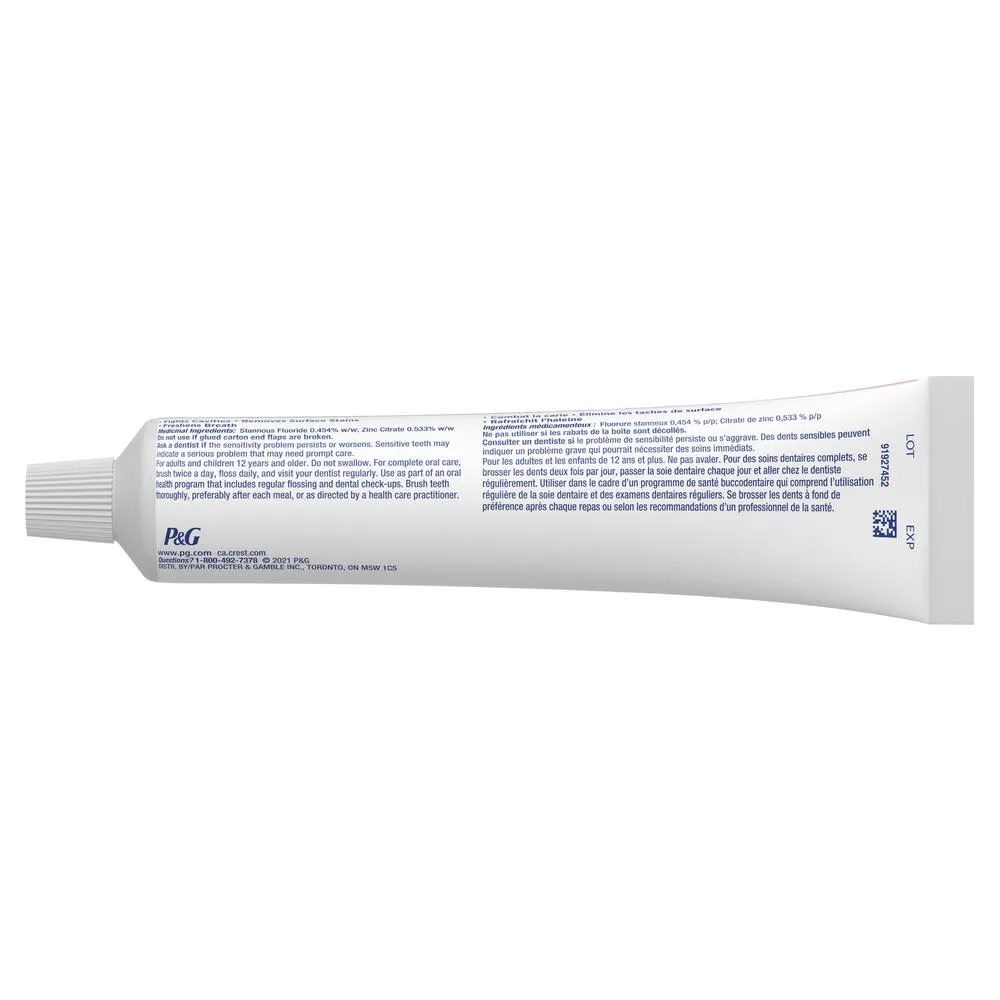
Proper brushing techniques are essential to get the most out of your Crest whitening toothpaste for sensitive teeth and to protect your oral health. Use a soft-bristled toothbrush to avoid irritating the gums and wearing down the enamel. Brush your teeth gently, using a circular or elliptical motion, rather than scrubbing back and forth. Ensure that you reach all surfaces of your teeth, including the front, back, and chewing surfaces. Brush for a full two minutes, as this duration is necessary for the toothpaste to be effective. Don’t apply too much pressure, as this can damage the enamel and irritate the gums. Replace your toothbrush every three months or sooner if the bristles become frayed. Proper brushing is not just about cleaning; it’s also about maintaining the health of your teeth and gums, thus, ensuring the best results from your toothpaste.
Additional Oral Care Tips
In addition to using Crest whitening toothpaste, incorporate other oral care practices to enhance the health and appearance of your teeth. Floss daily to remove plaque and food particles from between your teeth, where your toothbrush cannot reach. Use an alcohol-free mouthwash to help kill bacteria and freshen your breath. Consider using a tongue scraper to remove bacteria and debris from your tongue. Limit your intake of sugary and acidic foods and drinks, as these can erode the enamel. Visit your dentist regularly for professional cleanings and check-ups. Following these tips helps maximize the benefits of your toothpaste and improves overall oral health. Combining these practices with a good oral hygiene routine can significantly improve your teeth’s health and your smile’s radiance, helping you maintain a healthy mouth for years to come.
Potential Considerations and Side Effects
While Crest whitening toothpaste for sensitive teeth is designed to be gentle, some individuals may experience certain side effects. Mild sensitivity or irritation can occur, especially in the initial stages of use. If sensitivity increases significantly, discontinue use and consult a dentist. Some people may also experience a temporary increase in gum sensitivity or soreness. In rare cases, allergic reactions can occur; stop use and seek medical attention if symptoms such as swelling or rash appear. Be sure to use the product as directed and do not swallow the toothpaste. If you have any underlying oral health conditions, consult with your dentist before using whitening toothpaste. Being aware of these potential considerations and side effects ensures that you can use the product safely and effectively.
Sensitivity and Whitening
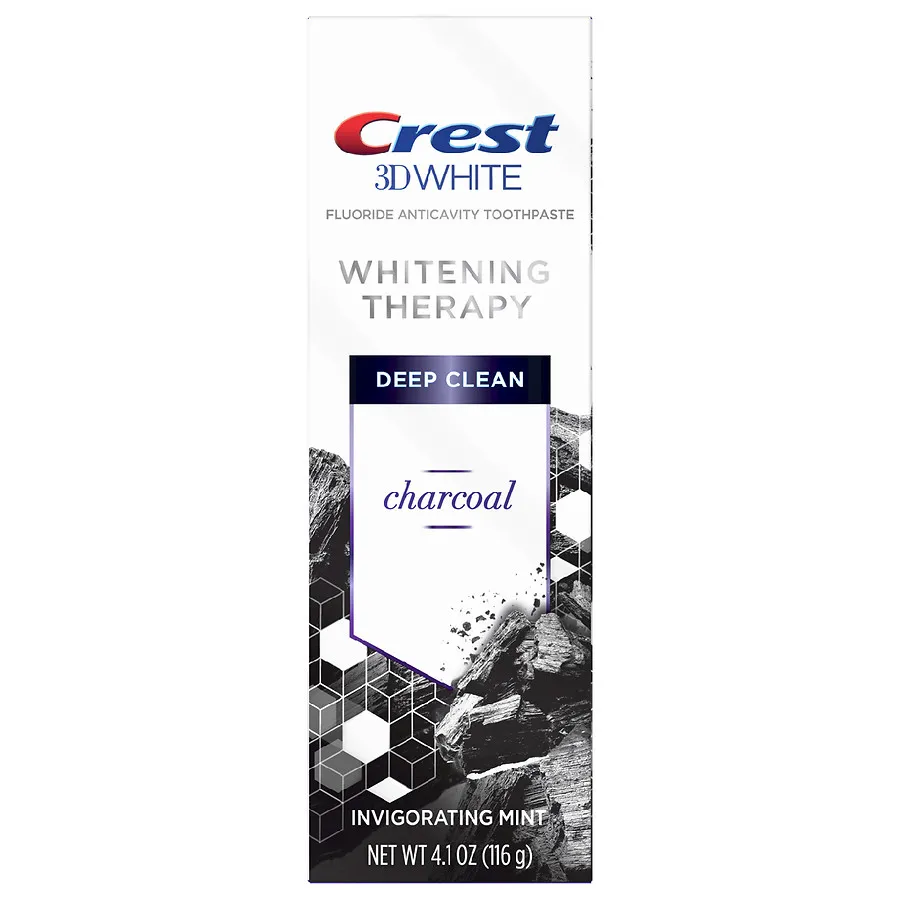
The relationship between sensitivity and teeth whitening can be complex. Traditional whitening products often contain strong bleaching agents that can lead to increased tooth sensitivity. Crest whitening toothpaste for sensitive teeth addresses this issue by using gentler formulations that minimize irritation. These toothpastes often include ingredients designed to protect the enamel and reduce sensitivity, such as potassium nitrate and fluoride. The goal is to achieve a brighter smile without compromising comfort. If you experience increased sensitivity, consider reducing the frequency of use or consulting your dentist. Finding the right balance between whitening and sensitivity relief is key to a comfortable and positive experience. By choosing the right product, you can enjoy the benefits of a brighter smile while maintaining healthy, comfortable teeth.
When to Consult a Dentist
It’s important to consult your dentist for personalized advice, especially if you experience persistent sensitivity or other oral health concerns. See a dentist if you experience severe or worsening sensitivity despite using Crest whitening toothpaste for sensitive teeth. Your dentist can help identify the underlying cause of the sensitivity and recommend appropriate treatments. Schedule regular check-ups and cleanings to maintain good oral health. Discuss your teeth whitening goals with your dentist to determine the best approach for your specific needs. If you experience any unusual symptoms, such as significant pain, swelling, or changes in gum health, consult your dentist immediately. Regular dental visits are crucial for maintaining optimal oral health and ensuring that any potential issues are addressed promptly. Your dentist can provide expert guidance to help you achieve and maintain a healthy, beautiful smile.
